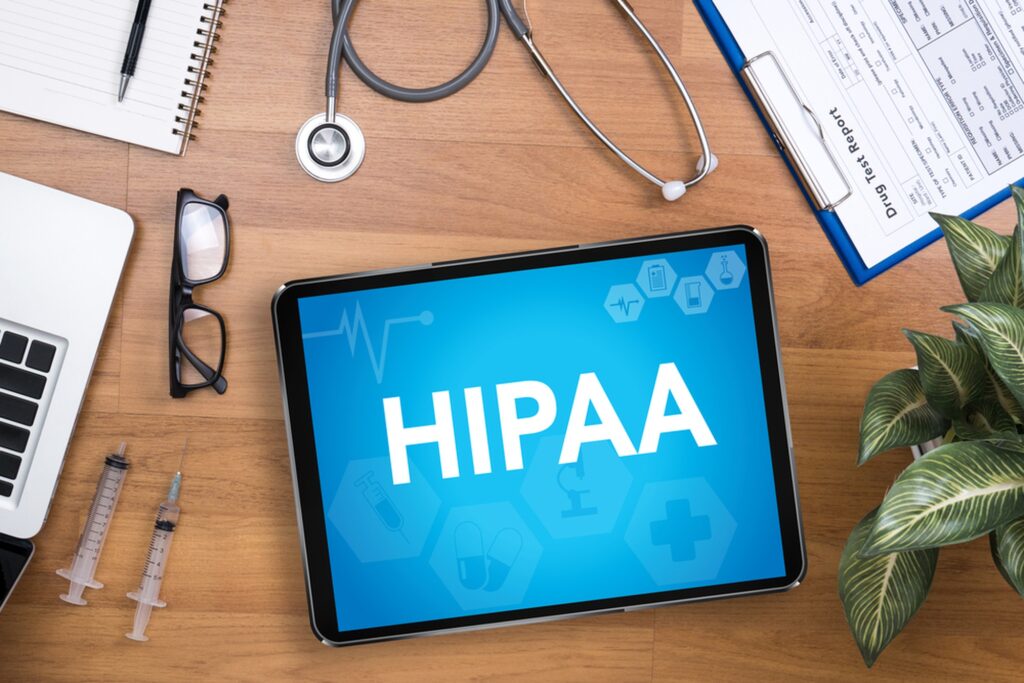![]()
For behavioral health professionals, safeguarding patient information is paramount. Compliance with HIPAA is not just a legal necessity but also a cornerstone of trust in healthcare. EMR systems must align with these standards to protect the sensitive data they handle daily. In this article, we will explore the resources and strategies essential for EMR HIPAA compliance to help professionals provide secure and effective care. Keep reading for valuable insights that can reinforce your practice’s commitment to patient privacy and data security.
Understanding EMR HIPAA Compliance for Behavioral Health Professionals
![]()
HIPAA sets the standard for protecting sensitive patient data. For behavioral health professionals, understanding and adhering to HIPAA regulations is critical. It ensures that patient information is handled with the utmost care and confidentiality, especially given the often-sensitive nature of the data in this field.
HIPAA compliance involves several aspects, from the physical security of the premises where patient data is stored to the cyber-security measures protecting electronic records. Behavioral health professionals must remain vigilant, ensuring that every part of their service, from intake to treatment notes, aligns with HIPAA guidelines.
While the complexity of these regulations may seem daunting, many resources are available to assist in compliance. For example, an EMR HIPAA compliance checklist can be an invaluable tool, providing a structured approach to addressing each required component of regulation.
Key Features of HIPAA-Compliant EMR Systems
![]()
When selecting an EMR system, understanding its key features is crucial for HIPAA compliance. First, the system should encrypt patient data both in transit and at rest, ensuring unauthorized individuals cannot access sensitive information.
Access controls are another vital feature; they guarantee that only authorized personnel can enter specific areas of the EMR system. Unique user IDs, strong password policies, and automatic log-off are functionalities that bolster the security of patient data.
Audit trails contribute significantly to the security and integrity of EMR systems. They allow behavioral health practitioners to monitor who accessed which information and when thus providing a clear record that facilitates the identification of any potential breach or misuse of data.
Training Resources for Compliance and Best Practices in Behavioral Health
![]()
Comprehending the intricacies of HIPAA can be overwhelming, but a variety of training resources are available to guide behavioral health professionals. Continuing education courses offered both in-person and online, provide detailed instruction on compliance procedures and legal requirements.
Industry conferences and webinars are platforms where experts discuss the latest developments in HIPAA regulations and share best practices. Such events offer valuable networking opportunities and insights into how other professionals are navigating compliance challenges.
Many professional organizations publish guides and materials tailored specifically for behavioral health practices. These resources can demystify HIPAA requirements and offer pragmatic advice for protecting patient privacy and securing data.
Auditing and Documentation Strategies To Maintain HIPAA Compliance
Regular audits are a critical component of maintaining HIPAA compliance in a behavioral health practice. They help identify vulnerabilities in privacy and security measures, allowing for timely rectifications and updates to protocols.
Documentation plays a significant role in compliance. By meticulously tracking every patient interaction and system access, practices can provide evidence of compliance efforts and rapidly address any issues that might arise.
Investing in specialized auditing software can automate much of the compliance process, offering not just periodic audits but continuous monitoring of system activities. This can be particularly helpful in large practices where manual oversight can be challenging.
Navigating HIPAA Compliance With Cloud-Based EMR Solutions in Behavioral Health
![]()
Cloud-based EMR solutions offer behavioral health professionals an efficient and scalable way to manage patient records while maintaining HIPAA compliance. With data stored securely offsite, these solutions can provide enhanced security and reduce the burden on in-house IT resources.
When utilizing cloud-based services, it is vital to verify that the vendors adhere to HIPAA regulations. This includes signing a Business Associate Agreement (BAA), which ensures that all parties assume responsibility for protecting patient information.
Overall, compliance with HIPAA is an ongoing process that requires vigilance and proper use of resources. By understanding and implementing key features of HIPAA-compliant EMR systems, investing in regular training and auditing, and leveraging cloud-based solutions, behavioral health professionals can build robust defenses for their patient’s sensitive information. With the right strategies in place, maintaining HIPAA compliance becomes an integrated part of delivering exceptional care.

